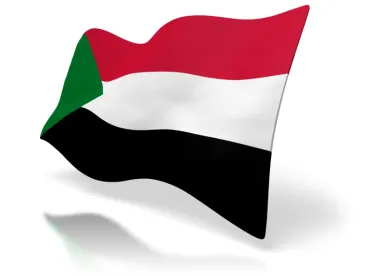The status of Sudan often arises for aircraft and jet engine lessors that require their lessees to comply with U.S. economic sanctions and export control programs. As the Office of Foreign Assets Control (“OFAC”) of the U.S. Department of the Treasury has recently issued guidance on the Sudan program,1 this is an opportune time to review the current status of Sudan insofar as the existing programs are concerned.
Many civil aircraft and jet engine leases contain provisions that prohibit the lessee and its allowed sublessees from operating the aircraft or engine to, from or within “prohibited” or “restricted” countries and regions, i.e., those countries and regions that are subject to comprehensive trade embargoes. From the standpoint of U.S. law, such countries and regions currently include Cuba, Iran, Syria, North Korea and the Crimea region of the Ukraine.
Prior to October 2017, Sudan and the Government of Sudan were also subject to comprehensive U.S. trade embargoes and, in accordance with their own compliance policies, U.S. lessors typically included lease restrictions prohibiting their lessees from conducting flights to, from or within Sudan or conducting business with Sudan Airways, which appeared on OFAC’s list of Specially Designated Nationals (“SDN”) at the time. U.S. Lessors that ignored or failed to enforce such restrictions learned from OFAC’s 2019 settlement in Apollo Aviation2 that their own nonfeasance could result in the imposition of civil penalties for violations of Sudanese sanctions.3
In October 2017, as a result of improving conditions, the United States began taking down existing trade sanctions against Sudan. Under Executive Orders signed by Presidents Obama and Trump,4 prior Executive Orders were revoked, in whole and in part,5 and dozens of Sudanese individuals and companies were removed from OFAC’s SDN list.6 In June 2018, the then-existing Sudanese Sanctions Regulations were removed, thereby opening the door for U.S. persons to re-engage in previously prohibited transactions with Sudan and the Government of Sudan.7 As a result of these actions, new aircraft and jet engine leases that were entered into after June 2018 often blue penciled Sudan from the list of restricted or prohibited countries.
The Guidance recently published by OFAC reminds us, however, that the sanctions book on Sudan did not end there.
For starters, the “national emergency” with respect to Sudan, first declared by President Clinton in 1997 pursuant to the International Emergency Economic Powers Act (“IEEPA”),8 has never been terminated and, in fact, has been expanded over the years. The declaration of a national emergency was last continued by President Trump on October 31, 20199 on grounds that, despite “positive developments” in Sudan, “the crisis constituted by the actions and policies of the Government of Sudan that led to the declaration of a national emergency” was then unresolved.10
Although seemingly odd that a national emergency still exists with respect to Sudan after 23 years,11 the fact that it does makes the return of sanctions against Sudan by executive fiat that much easier. Under IEEPA, the President may exercise broad sanctions powers “to deal with any unusual and extraordinary threat, which has its source in whole or substantial part outside the United States, to the national security, foreign policy, or economy of the United States, if the President declares a national emergency with respect to such threat.”12 Thus, the continuing existence of a national emergency involving Sudan under IEEPA allows the President to reimpose sanctions authorities against Sudan without Congressional direction or authorization.
In addition to the continuation of the national emergency against Sudan under IEEPA, Sudan also remains on the list of State Sponsors of Terrorism published by the U.S. Department of State, having first appeared on that list on August 12, 1993.13 Sudan was viewed by the U.S. State Department at the time as harboring international terrorist groups and providing “a convenient transit point, meeting site and safe haven [sic] for Iranian-backed extremist groups.”14 Sudan’s involvement with terrorist groups culminated in 1998 when al-Qaeda operatives simultaneously detonated truck bombs outside the United States Embassies in Kenya and Tanzania, killing 224 people, including 12 Americans.
Factual findings by a U.S. District Court later confirmed what many at the time believed: that Sudan “had knowingly served as a safe haven near the two United States Embassies and allowed al-Qaeda to plan and train for the attacks.”15 The court also found that Sudan “had provided hundreds of Sudanese passports to al-Qaeda, allowed al-Qaeda operatives to travel over the Sudan-Kenya border without restriction, and permitted the passage of weapons and money to supply al-Qaeda’s cell in Kenya.”16
In retaliation for the embassy bombings, the United States “conducted cruise missile strikes against [a] … pharmaceutical plant outside of Khartoum – which was believed at the time to be manufacturing chemical weapons for use by al-Qaeda and other international terrorist groups.”17 Bilateral relations between Sudan and the United States had reached their “low point.” However, in the months following the September 11, 2001, attacks against the United States by al-Qaeda, Sudan “began a campaign of expelling foreign jihadists from its soil and cooperating with U.S. [counter-terrorism] officials in the fight against … al-Qaeda.”18
In 2005, Sudan made peace with South Sudan and seemed to be on the road to removal from the U.S. terror list. However, those positive efforts became stalled as a result of subsequent fighting and human rights violations which occurred in the Darfur region of Sudan. Although Sudan was cooperating with the United States in the fight against international terrorism, its human rights record in Darfur created a split within the Obama administration on the de-listing issue.
Under the Trump administration, cooperation and relations between the two countries appear to be on a more positive trajectory. In April 2019, Sudan’s long ruling President Omar al Bashir was ousted and his regime replaced by a transitional government led by Prime Minister Abdalla Hamdok, who is pressing for a peaceful transition to democracy. The transitional government is also attempting to conclude an agreement with the United States to settle damages claims resulting from the 1998 embassy bombings. Prime Minister Hamdok’s goal is the eventual removal of Sudan from the list of State Sponsors of Terrorism and the establishment of normalized political, economic and trade relations with the United States. Although there are significant political and legal hurdles in the United States before that goal becomes reality, Secretary of State Michael Pompeo is on record as supporting immediate rapprochement.19
In the meantime, Sudan remains a State Sponsor of Terrorism, a designation that continues to have important implications for the export and re-export20 of items subject to the EAR, including civil aircraft of U.S. origin and foreign-built aircraft incorporating more than a de minimis amount of U.S. controlled content. These implications flow from Section 1754(c) of the recently enacted Export Control Act of 2018, which states that a license is required for the “export, re-export, or in-country transfer” of controlled items to any country whose government has been found to repeatedly provide “support for acts of international terrorism.”21
Because Sudan remains on the list of State Sponsors of Terrorism, exports and re-exports to Sudan are controlled for anti-terrorism (“AT”) purposes and those controls will likely remain in place until a deal is reached to remove the country from the list. AT controls affect the export and re-export of civil aviation aircraft and related gas engines, parts and components under ECCN 9A991, which means that Sudan will be subject to AT controls under 15 C.F.R. §742.10 and a general licensing policy of denial if an appropriate license exception is not otherwise available under 15 C.F.R. §740. The most common license exception used in connection with civil aircraft is the one that applies to aircraft, vessels and spacecraft (AVS) – commonly referred to as the temporary sojourn license exception.22 The application of AVS is subject to detailed requirements that must be strictly followed.
The OFAC Guidance provides a valuable reminder to U.S. aircraft lessors that Sudan remains a special case. Although no longer subject to a comprehensive trade embargo administered by OFAC, Sudan is still subject to a national emergency declaration under IEEPA and is still listed as a State Sponsor of Terrorism, a designation which triggers AT export controls. Aircraft and jet engine lessors whose lessees fly to Sudan should be mindful of that country’s status and should ensure that their leases require compliance with sanctions and export controls otherwise applicable to the leased aircraft and engines.
1 See Office of Foreign Assets Control, Sudan Program and Darfur Sanctions Guidance as of August 11, 2020 (hereinafter “Guidance”).
2 See Office of Foreign Assets Control, Enforcement Information for November 7, 2019, re: Apollo Aviation Group, LLC.
3 See John E. Bradley, Apollo Settles Alleged Sanctions Violations: Aircraft Lessors Pay Attention (Dec. 19, 2019), https://www.vedderprice.com/apollo-settles-alleged-sanctions-violations-aircraft-lessors-pay-attention?overview.
4 See Exec. Order No. 13761, Recognizing Positive Actions by the Government of Sudan and Providing for the Revocation of Certain Sudan-Related Sanctions (Jan. 13, 2017), as amended by, Exec. Order No. 13804, Allowing Additional Time for Recognizing Positive Actions by the Government of Sudan and Amending Executive Order 13761 (July 11, 2017).
5 Effective October 12, 2017, sections 1 and 2 of Exec. Order No. 13067, 62 Fed. Reg. 59,989 §§1, 2 (Nov. 3, 1997) and all of Exec. Order No. 13412, 71 Fed. Reg. 61,369 (Oct. 13, 2006), were revoked.
6 Office of Foreign Assets Control, Notice of Sanctions Action Pursuant to Executive Order 13067 and Executive Order 13412, 82 Fed. Reg. 49,698 (Oct. 26, 2017).
7 Office of Foreign Assets Control, Removal of the Sudanese Sanctions Regulations and Amendment of the Terrorist List of Government Sanctions Regulations, Final Rule, 83 Fed. Reg. 30,539 (June 29, 2018). The revocation of the then-existing Sudanese Sanctions Regulations did not affect OFAC sanctions related to the conflict in Darfur or OFAC designations of any Sudanese persons pursuant to other sanctions programs. Id.
8 50 U.S.C. §§1701-1708.
9 84 Fed. Reg. 59,287 (Nov. 1, 2019).
10 Id.
11 The House Report accompanying IEEPA stated that national “emergencies are by their nature rare and brief, and are not to be equated with normal, ongoing problems.” Christopher A. Casey et al., Cong. Research Serv., R45618, The International Emergency Economic Powers Act: Origins, Evolution, and Use 17 (2020) [hereinafter CRS Report] (citing H.R. Rep. No. 95-459, at 11 (1977)).1
12 50 U.S.C. §1701(a) (emphasis added). In addition, Congress “has used IEEPA outside of the context of national emergencies. When Congress legislates sanctions, it often authorizes or directs the President to use IEEPA authorities to impose those sanctions.” CRS Report, supra note 12, at 23.
13 See U.S. Dep’t of State, Bureau of Counterterrorism, State Sponsors of Terrorism https://www.state.gov/state-sponsors-of-terrorism/ (last visited Sept. 25, 2020).
14 Cameron Hudson, Removing Sudan’s terrorism designation: Proceeding with caution, The Atlantic Council (Mar. 16, 2020) (https://www.atlanticcouncil.org/blogs/africasource/removing-sudans-terrorism-designation-proceeding-with-caution/) [hereinafter “Hudson”] (citing U.S. Dep’t of State, Patterns of Global Terrorism 1994 23 (1995).
15 Owens v. Republic of Sudan, 826 F. Supp.2d 128, 139-146 (D.D.C. 2011).
16 Id.
17 Hudson, supra, note 14.
18 Id.
19 See Letter dated September 16, 2020, from Secretary of State Michael R. Pompeo to the Hon. Mitchell McConnell (https://www.documentcloud.org/documents/7213125-Pompeo-Letter-McConnell-Sudan-2020-09-18-073433.html).
20 The term “re-export” is defined to include an “actual shipment or transmission of an item subject to the [Export Administration Regulations] from one foreign country to another foreign country, including the send or taking of an item to or from such countries in any manner.” 15 C.F.R. §734.14(a)(1).
21 A similar provision, 50 U.S.C. § 4506(j) (repealed 2018), appeared in the now repealed Export Administration Act of 1979, Pub. L. No. 96-72 (repealed 2018).
22 15 C.F.R. §740.15.



 />i
/>i

